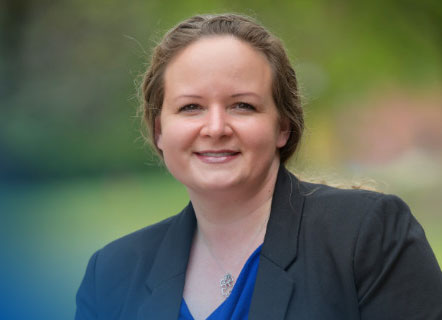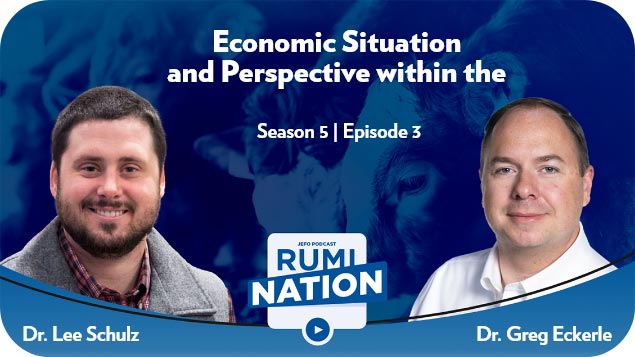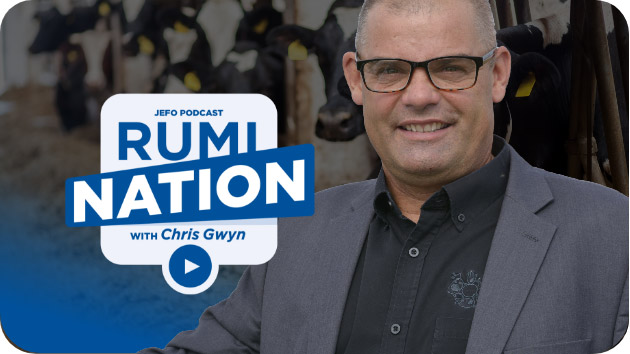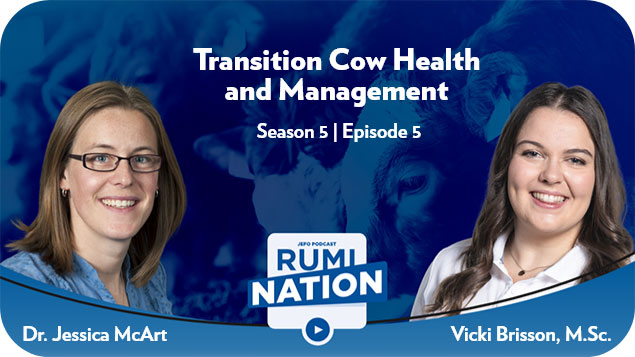RumiNation | S05 : E04
How Mathematical Models Can Help Animal Nutrition
Brought to you by Jefo Nutrition
Share now!
Did you enjoy this episode?
Share now!
Our guest - Dr. Jennifer Ellis
Dr. Jennifer Ellis is an assistant professor at the University of Guelph, in the Animal Biosciences Department, and is newly promoted to Associate Professor as of July 1st of this year. Her research program focus is Animal Systems Modelling, and since joining the University in 2019, her objectives are focused on increasing the digital competency of undergrad and grad students, to better support this rapidly advancing sector.

Timestamps & Summary
Vicky Brisson (02:20)
In the last decade, modeling is a research method that’s growing in popularity. However, mathematical modeling and livestock nutrition has been around for much longer than that. Can you explain models and what limitations they have?
Dr. Jennifer Ellis
A model can be anything from a single equation to a set of dozens or even thousands of equations, which represent, in our case, the behavior of a biological system. So, scientists will use models to help represent bits of the real world and to either aid our understanding of complex systems or as a tool to help make predictions. […]
Vicky Brisson (06:03)
How do models help us turn data into knowledge that actually helps our industry innovate in areas?
Dr. Jennifer Ellis
If you ever get the chance, you should really take a look at the Ackoff or DIKW Pyramid which essentially describes the steps required to transform data into information and then information into knowledge and then knowledge into wisdom. It’s really fascinating when you start looking at that. But essentially, as you point out, data on its own is really just a series of signals. And with just data, we know nothing, right? Data only starts to become useful, or it becomes information when we provide context to that data. […]
So essentially, moving us up this pyramid is the task of research, and it’s the task of models to translate data into actionable wisdom. […]
Vicky Brisson (09:04)
Your lab is unique in the sense that you use models to expand nutritional research for many different species, and that includes dairy cattle, veal, turkey, and horses. Can you share with us how that came to be and how your modeling approach is shaped by what we like to call cross-pollination of many different fields of study?
Dr. Jennifer Ellis
I started as a ruminant nutrition and metabolism modeler in my master’s and Ph.D. And from there, I think, rather organically, I began to get pulled into projects for other species. And in fact, when I went into industry, I was filling the role as a poultry modeler. So, I think throughout my career, modeling has been a skill set. And it’s a skill that can be applied to a myriad of problems, topics, and species. And I think across species, animals have more in common than you might think initially. And I think we too often stay in our species silos. […]
Vicky Brisson (11:50)
How can models support on-farm decision-making?
Dr. Jennifer Ellis
At the moment, many models are used and applied by what I call expert users within various companies. And those companies will support producers in making on-farm decisions. So, you think of your nutritionist, for example. And those models are used to forecast different scenarios and how suggested changes may impact outcomes such as performance, sustainability, andeconomics. They can really be used to examine, “what if” scenarios, what if we did this change? What if we made this adjustment? What kind of outcome are we expecting to see now? […]
Vicky Brisson (13:38)
Based on your experience, why do you believe that modeling is a skill that students should invest time into exploring and why has that become such a big part of what you do at the University of Guelph?
Dr. Jennifer Ellis
I think as the agriculture sector becomes more and more digitized, with more and more data being collected, it will need more and more graduates entering the workforce with the ability to analyze and interpret and service these digital tools or models. So, for me, my biggest piece of advice for students now is to actually learn a coding language. Become computationally competent. The challenge the industry has at the moment is that people with that combined skill set, a knowledge of animal production systems plus digital competency, is low. […]
I think that that’s a skill that will become more and more in demand. […]
Vicky Brisson (15:21)
How would you define the future of modeling? What will be the main challenges in this area of research and innovation?
Dr. Jennifer Ellis
I think the future of modeling is really interesting. And I think what we’ll see is the merging of traditional biological understanding based modeling, which we commonly refer to as mechanistic modeling, blending that with emerging data streams and the accompanying machine learning algorithms that are best suited to analyze them. […]
For all of these new modeling methodologies, I think the biggest challenge will be getting robust and variable enough data to develop them so that they become good models to make forecasts from. […]
Vicky Brisson (18:54)
Can you share three take-home messages for nutritionists, veterinarians, and producers when they consider applications of nutritional models on farms?
Dr. Jennifer Ellis
Number one: Get more from your data by leaning into modeling and data analytics. […]
The second one: Develop those computational skill sets in yourself and promote it in your employees, if not already. […]
And the third one is to communicate and get engaged with developers. […]







